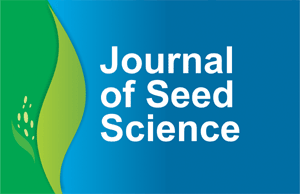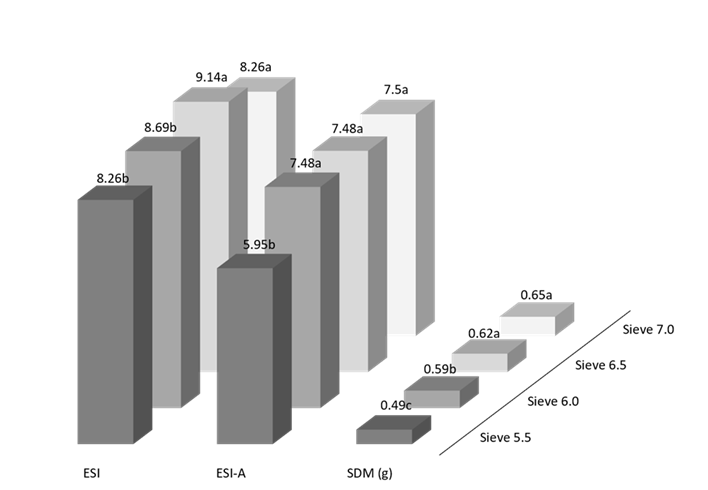Abstract:
The size of soybean seeds needs further study because its relationships with physiological quality, field establishment, and yield are controversial. The aim of this study was to evaluate the effects of seed size on soybean establishment and seed physiological quality. In the field, a 2x3x3 factorial design was used, with two cultivars (M 5947 IPRO and 59HO124 IPRO), three seed sizes (5.5, 6.0, and 6.5 mm), and three sowing densities (280,000, 320,000, and 360,000 plants.ha-1). Agronomic traits and grain yield were evaluated. After harvest, only seeds from plots with a population of 320,000 plants were classified by size using circular sieves with 5.5-mm, 6.0-mm, 6.5-mm, and 7.0-mm mesh sizes. For the evaluation of physiological quality, a 2x4 factorial design was applied, with two cultivars and four seed sizes. Germination, seedling emergence, accelerated aging, seedling dry matter, and emergence speed index were evaluated. Smaller seeds gave rise to shorter plants with a lower first pod insertion height. Larger seeds had higher physiological quality. The M 5947 IPRO cultivar showed better seed performance and quality.
Index terms:
Glycine max L.; seed diameter; sieve classification; vigor; yield

 Thumbnail
Thumbnail
 Thumbnail
Thumbnail
 Thumbnail
Thumbnail
 Thumbnail
Thumbnail
 Thumbnail
Thumbnail




